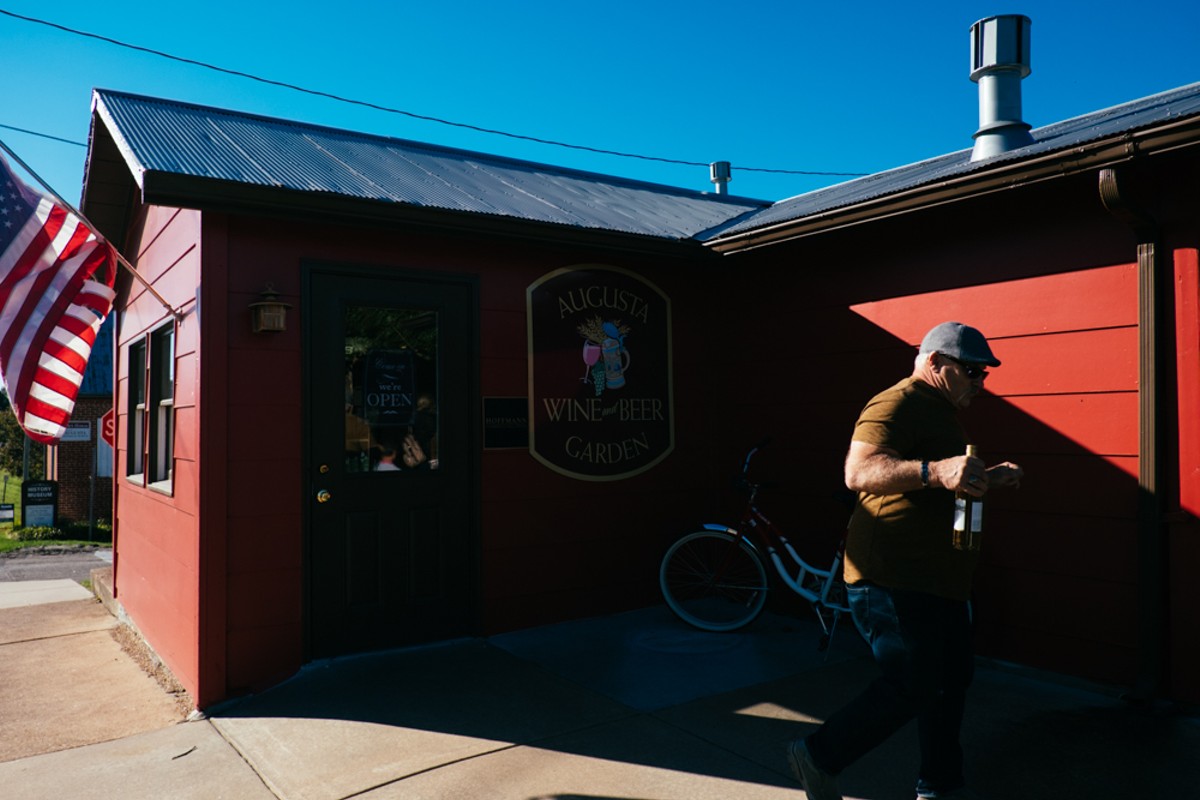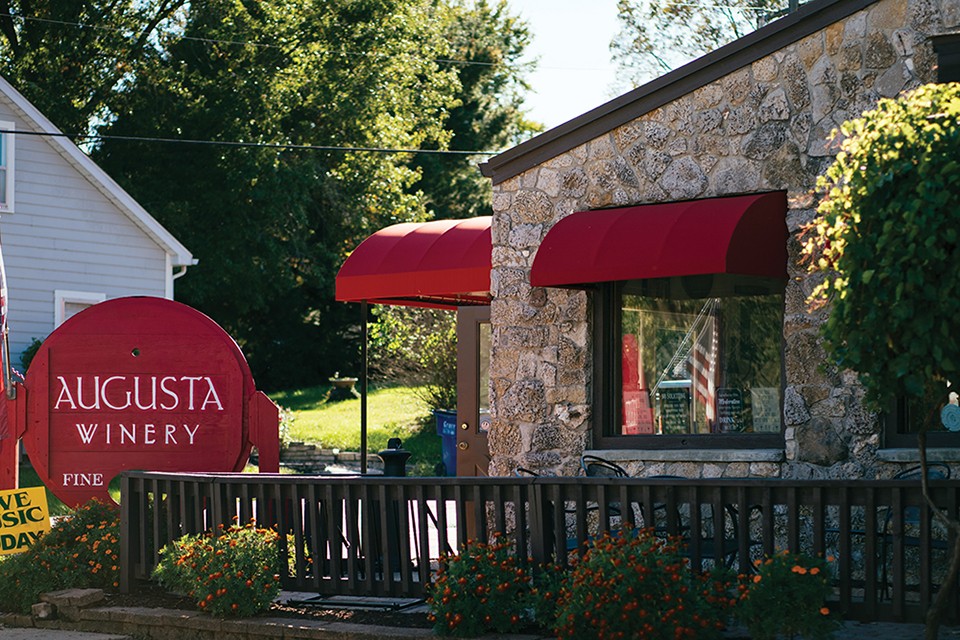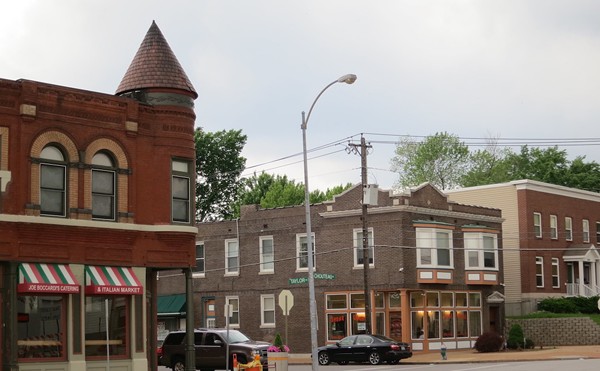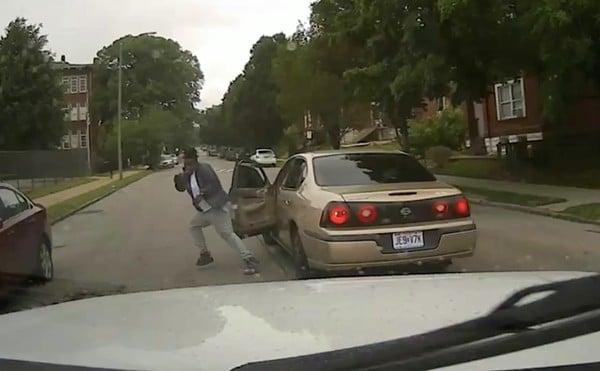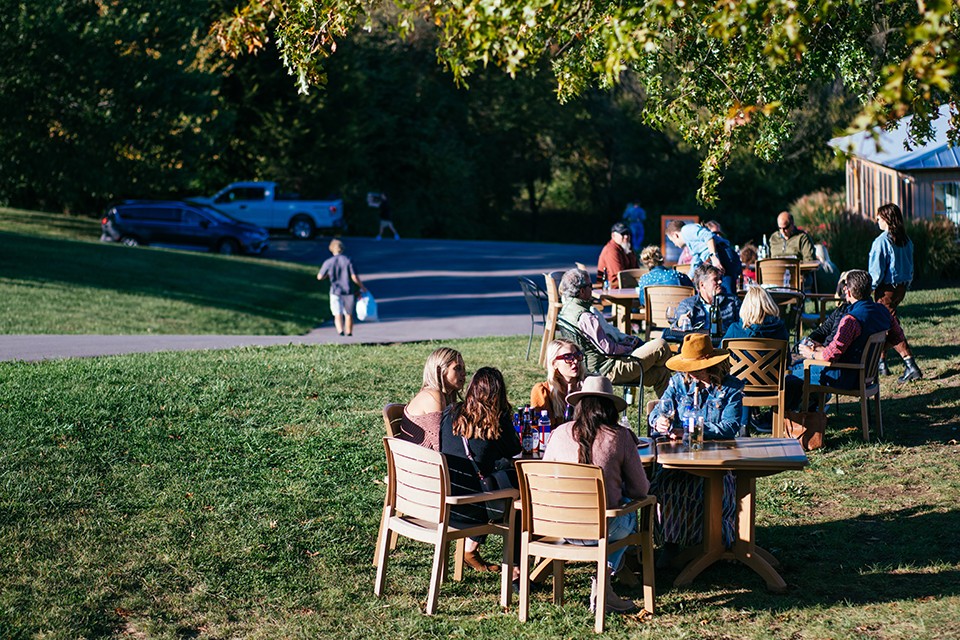
Around the time the Augusta-area public first heard of the Hoffmanns' plans for their region, David Hoffmann explained in a company press release that his company wanted "to provide not only great wine from the beautiful countryside of Missouri, but to create a national destination similar to Napa Valley." And while the comparison proved irresistible to urban headline writers and newscasters, among several people in wine country it conjured more dread than excitement. If the greater Augusta area, with its five wineries, was to rival the tourism industry in Napa Valley, with close to 500, that would truly require a transformation. "That's scary to me, Napa Valley, when he says that," says JoAnn Struckhoff.
"Lemme give you a news flash," says Joe Brazil, the St. Charles County councilman whose district includes the Augusta area. "We don't want Napa out here. Come on."
Chris Armstrong, the director of marketing for the Hoffmann Family of Companies, says the comparison has created the wrong impression of what the Hoffmanns actually want to achieve. "We're not going to be bringing millions of people through here," he tells the RFT. "It's just logistically impossible." Even adding up all the Hoffmanns' winery purchases and plans for new lodging, "we're talking about four wineries and a maximum of 100 rooms." The point of evoking Napa, from the start, he says, has been about the quality of the wine and experience, not the quantity of tourists.
But by the time both Hoffmanns logged onto a Zoom meeting in January to greet their new neighbors and explain their hopes, local suspicion had been seeded, and they have never been able to fully uproot it. Meanwhile, the physical changes to Augusta started happening quickly, and no one, not even the Hoffmanns, knew the exact end state. Fences went up. Sculptures appeared. Buildings got new coats of paint, sometimes very bright ones, oranges and yellows and greens and reds. David Hoffmann at one point allowed that "there might be some discussion about the paint colors" and that he'd heard a single negative comment from a skeptic, who later changed their mind. (Most of the half-dozen or so residents who offered their perspectives for this story complained about the paint.)
The bigger outcry concerned the fate of the trees at Montelle, the picturesque hilltop winery the Hoffmanns had acquired. Armstrong says some trees had to come out, because the roots were imperiling the winery's deck, and that the unobstructed view down the hill is gorgeous. (The Hoffmanns had also initially planned to put their hotel there, before learning from Councilman Brazil that the location could not handle so much sewage.) But for Glenda Drier, the farm gal, the trees were the view. "That was the beauty of it, all those trees," she says. "Now it's just barren dirt." The fact that the tree clearance lacked the proper permits when it started — St. Charles County briefly made the company stop work on that and one other removal operation while the paperwork got sorted, according to a county spokesperson — and that old oaks were sacrificed in part for a hotel project that never materialized, contributed to Drier's sense that the Hoffmanns were steamrolling ahead way too fast.
Tensions went on building from there. Armstrong, hearing from residents that they wanted more communication about the Hoffmanns' plans, joined the town's private Facebook group in March and offered to answer questions. He hoped to reassure residents that the Hoffmanns wanted to be good neighbors — they were restoring buildings, not tearing them down; they were invested in the community and planning to stick around; they weren't just buying properties to flip and abandon; in fact they'd almost never sold a property once they'd bought it. Armstrong was in the Facebook group about a week before, he says, nasty messages to him and even his family members drove him to leave — the online forum and even Augusta itself for two months. In a farewell message, he said residents should go to their town council meetings to make their opinions heard and join a text-messaging hotline he'd set up if they wanted updates. (The number, which he asked me to publicize, is 636-249-2023.) "I got messages from complete strangers in town just mortified by what had happened," he says.
A few months later, another simmering online showdown boiled over into real life when townsfolk learned that the Hoffmanns hoped, as part of their hotel development, to create a spot for helicopter parking. Loud paint was one thing, but the idea of loud rotors disrupting the peace, distracting the elementary school students and freaking out the livestock was another. Even the Buddhists got upset. A member of the Mid-America Buddhist Association, a space for retreats and quiet contemplation on a hill in greater Augusta, circulated a petition opposing the helipad and got more than 400 signatures. At an August meeting of the St. Charles County Planning and Zoning Commission, several residents and fans of Augusta took the mic to denounce the plan, its "abhorrent" proposed location near a cemetery where the town's forefathers lie and the possibility of hot-air balloon tours. Drier read a letter from a 94-year-old couple living directly in the proposed flight path who begged right on the envelope, "Please no helicopter." Onto the hypothetical helipad, it seemed, focused months of built-up angst. "People come to Augusta because they want the peace and the serenity that came with it," said Kim Siem, who owns a farm across from the Hoffmann-owned Balducci winery. "I don't understand how someone can say they came to Augusta, and they liked it — and then they want to change everything about it. That, to me, doesn't make sense. At all."

